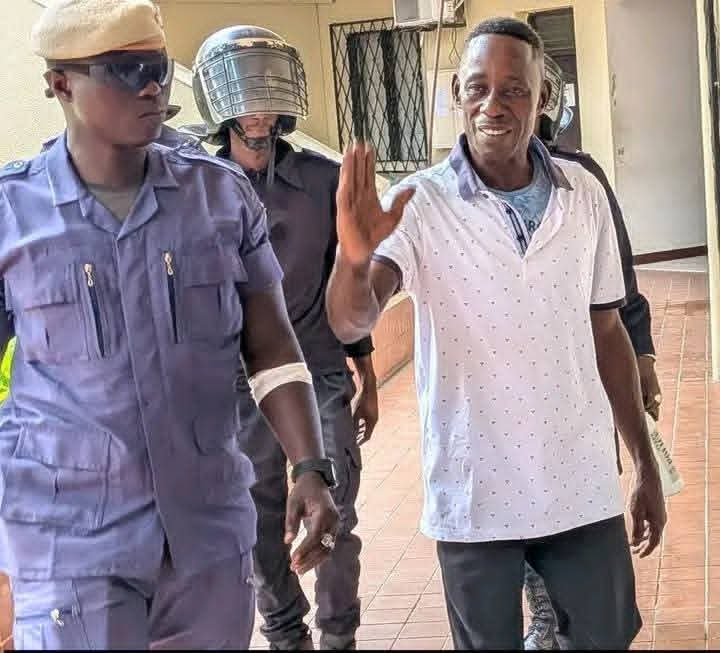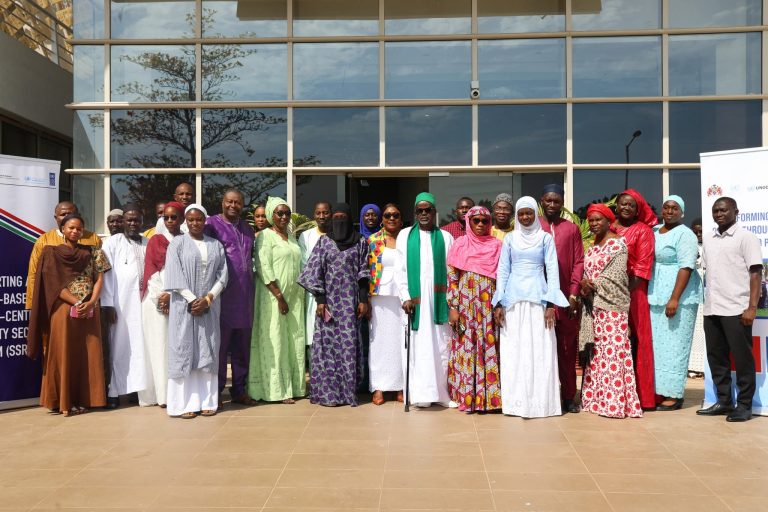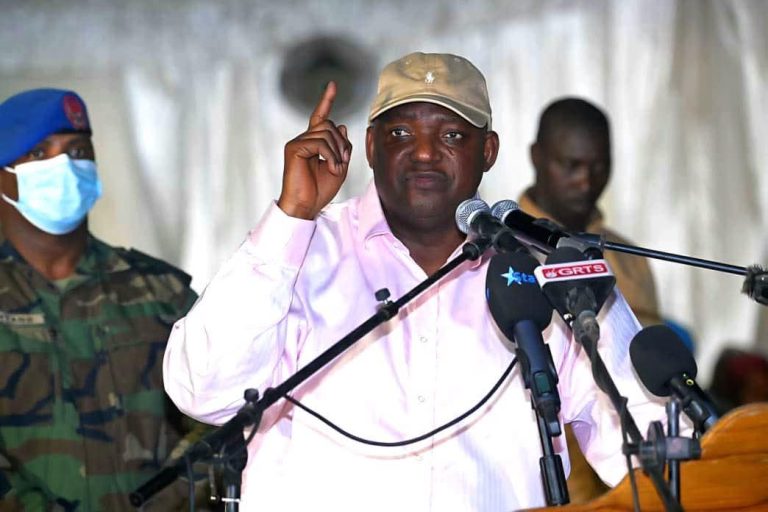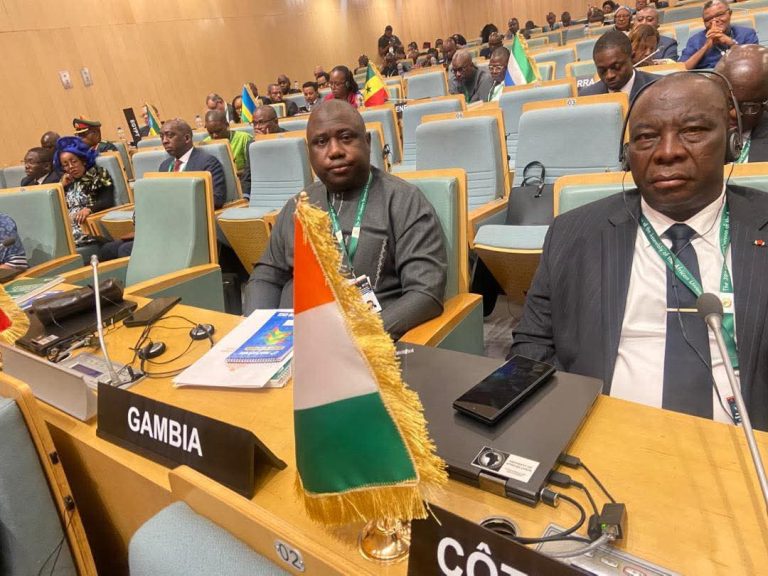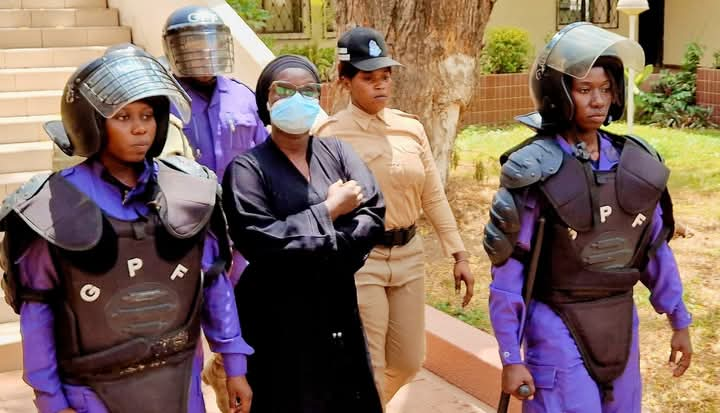
Court Orders Fresh Trial in Kumba Sinyan Murder Case, State Appeals to Supreme Court
By:Kexx News
In a dramatic twist to one of the country’s most closely watched murder trials, the High Court has ruled and ordered a fresh trial (de novo) in the case of State v. Kumba Sinyan, accused of the murder of her boyfriend (Lamarana Jallow) at the Friendship Hostel by cutting his stomach using a razor blade.
The ruling, delivered by Hon. Justice A.J. Coker on April 2, 2025, has drawn a swift response from the Attorney General’s Chambers, which has appealed the decision to the Supreme Court and filed a motion seeking to stay further proceedings.
Kumba Sinyan was first arraigned on November 9, 2022, charged with the murder of Lamarana Jallow. She pleaded not guilty, and the trial commenced before Hon. Justice Sidi K. Jobarteh. The prosecution, led by Principal State Counsel M. Sanyang, called ten witnesses and tendered eighteen exhibits before closing its case on March 14, 2024.
The defence was scheduled to open its case on April 15, 2024. However, proceedings were delayed after defence counsel, Mrs Sagarr Twun, raised concerns about the mental health of the accused. Following a court-ordered psychological evaluation, Sinyan was declared fit to stand trial and she began testifying on June 26, 2024, continuing for six consecutive sittings.
Complications arose in September 2024 when Justice Jobarteh proceeded on maternity leave. Upon her return, Defence Counsel Twun wrote to the Chief Justice requesting that the matter be reassigned to another judge. The Chief Justice subsequently transferred the case to Hon. Justice A.J. Coker, a newly appointed High Court Judge.
Upon reassignment, Counsel Twun filed a motion requesting that the trial be started afresh, citing the High Court Practice Directions of 2013 and 2019, which mandate a de novo hearing in criminal trials when a new judge assumes the case and the accused does not consent to proceed from where the case stopped.
State Counsel M. Sanyang strongly opposed the motion, arguing that a fresh trial would be prejudicial to the prosecution’s case, given the length and complexity of the proceedings already undertaken. She argued that restarting the trial would result in significant delays and would amount to a miscarriage of justice, especially as the State had already closed its case after over a year of diligent prosecution.
Nevertheless, Justice Coker ruled in favour of the defence, emphasising the mandatory language of the Practice Directions. In her decision, she held:
“The position of the law must guide the Court. In a criminal trial such as this, for the capital offence of murder, the accused person must be given every opportunity to properly present her case.”
Justice Coker added that the seriousness of the offence, combined with the transfer of the case to a new judge, justified a full restart in the interest of justice. The court granted the application and directed that the matter commence de novo.
Dissatisfied with the ruling, the Attorney General’s Chambers filed an appeal before the Supreme Court of The Gambia, challenging the applicability of the Practice Direction in the case.
The State, represented by Principal State Counsel Abdulmuhsin A. Wakawa, argues that a de novo trial would not serve the interest of justice and would contravene Sections 4 and 5 of the 1997 Constitution, which protect the public interest and the integrity of the judicial process.
In a supporting affidavit deposed by Ms. Yassin Senghore, a clerk at the Attorney General’s Chambers, the State contends that a fresh trial would render nugatory the extensive resources, time, and effort already expended. It also raises concerns about the potential unavailability of key prosecution witnesses, some of whom have reportedly left the jurisdiction.
“The trial has spanned more than two years and three months,” Counsel Wakawa stated. “Restarting the trial would waste public resources and frustrate justice for both the victim and the State.”
On May 7, 2025, the State filed a formal motion before the High Court in Bakau, seeking a stay of proceedings pending the Supreme Court’s determination of the appeal. The motion is scheduled for hearing on June 4, 2025 before the newly assigned trial judge.
The outcome of that hearing will determine whether the case proceeds afresh or is paused pending a higher judicial determination. Legal experts say the case raises critical questions about the balance between the procedural rights of the accused and the State’s duty to prosecute serious crimes efficiently.
The murder of Lamarana Jallow has gripped public attention since it was first reported, and the ongoing legal battles have only deepened the national interest. The Supreme Court’s eventual ruling is expected to set a significant precedent on the interpretation of procedural fairness, judicial continuity, and the application of High Court Practice Directions in serious criminal cases.

